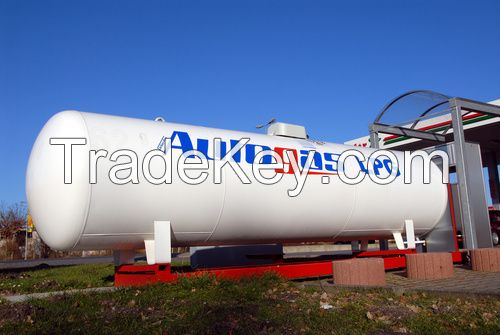
FOB Price
Obtener el precio más reciente|
Minimum Order
Place of Origin:
-
Price for Minimum Order:
-
Minimum Order Quantity:
-
Packaging Detail:
-
Delivery Time:
-
Supplying Ability:
-
Payment Type:
-
Liquefied petroleum gas (LPG), also called LPG or LP Gas, actually
encompases 2 main gases propane (C3) or butane (C4) are flammable
mixture of hydrocarbon gases used as a fuel in heating appliances
and vehicles.
It is a clean-burning fossil fuel that can be used to power
internal combustion engines. At normal temperature and pressure it
is a gas but in a vessel under modest pressure it becomes a liquid.
Varieties of LPG bought and sold include mixes that are primarily
Propane or mixes that are primarily Butane.
LPG evaporates at normal temperatures and pressures. LPG is heavier than air and thus tends to settle in low spots, such as basements. This can cause ignition or suffocation hazards if not dealt with.
LPG-fueled vehicles can produce significantly lower amounts of some harmful emissions and the greenhouse gas carbon dioxide (CO2). The international standard is EN **9.
LPG is usually less expensive than gasoline, it can be used without degrading vehicle performance, and most LPG used in U.S. comes from domestic sources. In Australia, LPG (Propane) is virtually supplied to all homes and businesses.
LPG is supplied in gas bottles that are either exchanged or refilled on site by gas tankers. LPG (Butane) is supplied to specific businesses whereby it has advantage over Propane. These applications are normally related to greenhouse and use as propellant in aerosols.
The chemical formula for butane is C4H*0. There is another mix -(Propane/Butane) called Autogas. This is the same LPG gas sold at petrol stations. Autogas LPG run vehicles and especially public bus and many private car owners have economic value as LPG cost is cheaper than petrol or diesel.
Another advantage is lower greenhouse gas emissions as compared with petrol or diesel. However the availability of LPG-fueled light-duty passenger vehicles is currently limited. A few light-duty vehicles—mostly larger trucks and vans—can be ordered from a dealer with a prep-ready engine package and converted to use propane.
Existing conventional vehicles can also be converted for LPG use. Since propane is stored as a liquid in pressurized fuel tanks rated to **0 psi, LPG conversions consist of installing a separate fuel system if the vehicle will run on both conventional fuel and LPG or a replacement fuel system for LPG-only operation.
Advantages of LPG
More than *0% of propane used in U.S. comes from domestic sources. Delhi (India) public transport bus service runs on LPG due to pollution issue.
In many countries now LPG driven public transport system is becoming mandatory. It is less expensive than gasoline. Low maintenance costs are one reason behind propane popularity for high-mileage vehicles.
Propane high octane and low-carbon and oil-contamination characteristics have resulted in greater engine life than conventional gasoline engines.
It is Environmentally friendly and reduces pollution with potentially lower toxic, carbon dioxide (CO2), carbon monoxide (CO), and non methane hydrocarbon (NMHC) emissions.
Disadvantages of LPG
There are still logistic issues. Limited availability (a few large trucks and vans can be special ordered from manufacturers; other vehicles can be converted by certified installers).
It is lesser readily available than gasoline & diesel however new infrastructure is being mobilized.
It has fewer miles on a tank of fuel. Typically in fleet applications, propane costs less than gasoline and offers a comparable driving range to conventional fuel.
Although it has a higher octane rating than gasoline rating (**4 to **2 compared with *7 to *2 for gasoline), and potentially more horsepower, it has a lower Btu rating than gasoline, which results in lower fuel economy.
